St Michael's Flags and Angel Meadow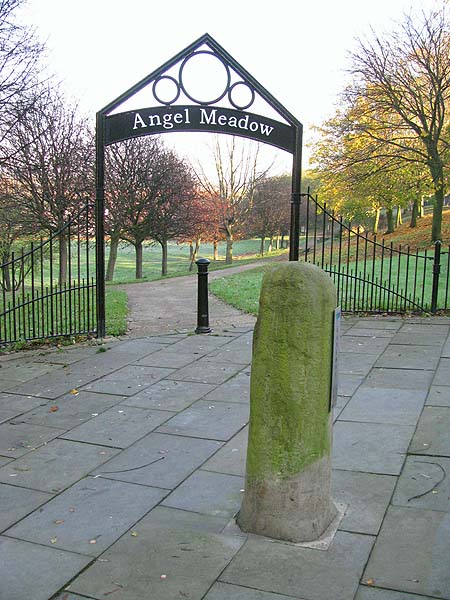 A pleasant city park can
be found today between Aspin Lane and Old Mount
Street. The entrance to the park is marked by a
gateway with the name Angel Meadow above it. This
piece of land is divided by an old wall with a gateway
of its own close to the Aspin Street side.
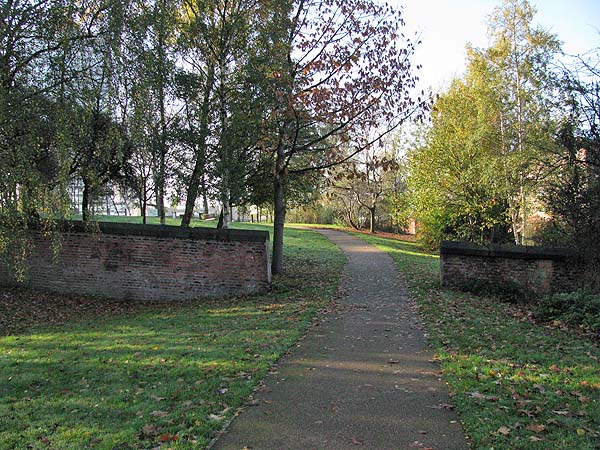 As you can see from the
map below the land between this wall and the Angel
Street entrance was once the church yard of St.
Michael's and All Angels Church.
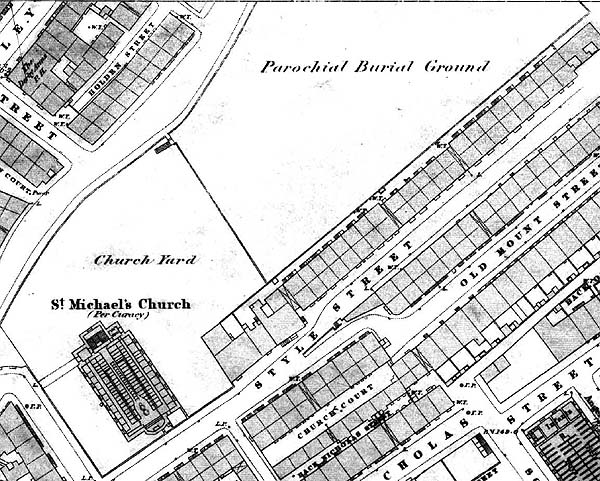 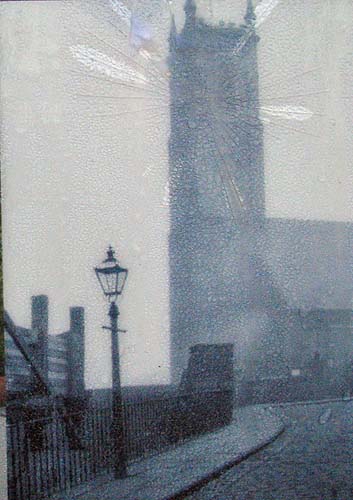 The rest of the land was
the Parochial Burial Ground to serve the grossly
overcrowded Angel Meadow area, which was described by
Angus Reach in 1847 as: "the lowest, most filthy,
and the most wicked locality in Manchester … inhabited
by prostitutes, their bullies, thieves, cadgers,
vagrants, tramps, and, in the very worst sties of filth
and darkness, those unhappy wretches, the low Irish."
Joseph Aston in "A Picture of Manchester" (1816), describes the burial ground saying that the New Cemetery is the "largest cemetery in the town, and is appropriated to the internment of poor persons, who have no family place of burial. It is attached to the mother church, in which the register is kept; but the service is performed by the minister of St Michael’s. The number of poor persons who are continually dying in Manchester must be great, and an expeditious and economical method of interring the bodies of the dead has been adopted. A very large grave, or more properly, a pit for the reception of mortality, is digged, and covered up, (when not actually in use for depositing the remains of the dead) with planks, which are locked down in the night, until the hole is filled up with coffins piled beside and upon one another. The cavern of death is then closed, and covered up with earth; and another pit is prepared, and filled in the same manner This cemetery was consecrated by the Bishop of Chester, the 21st day of September, 1787; since which, many thousand bodies have been interred in this singular depot (it might be said. magazine) of mortality." 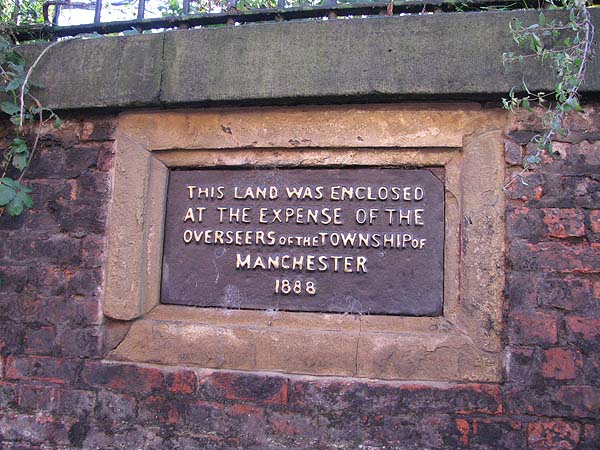 When the cemetery was
"full" the ground was covered in flag stones which then
became a children's playground. The flags featured
in a painting by L. S. Lowry and were in place until
relatively recently when they were removed to create the
park we see today.
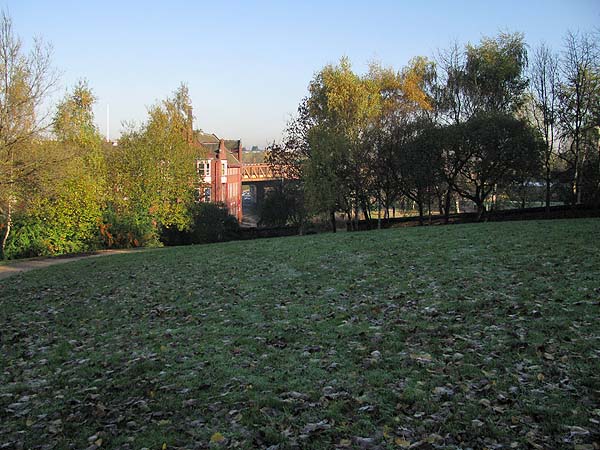 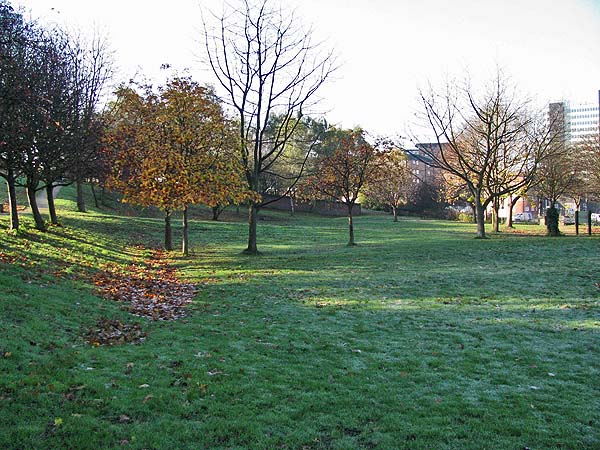 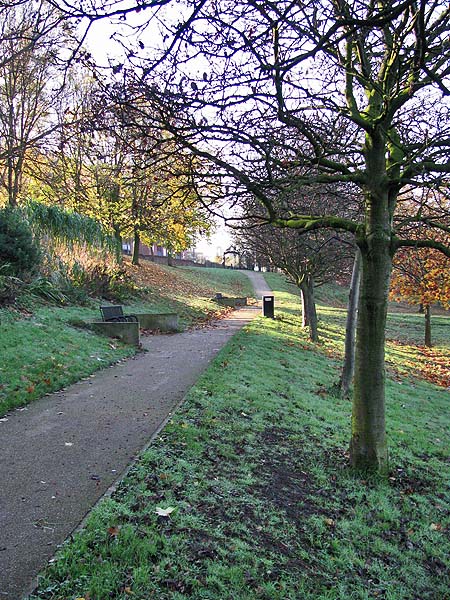 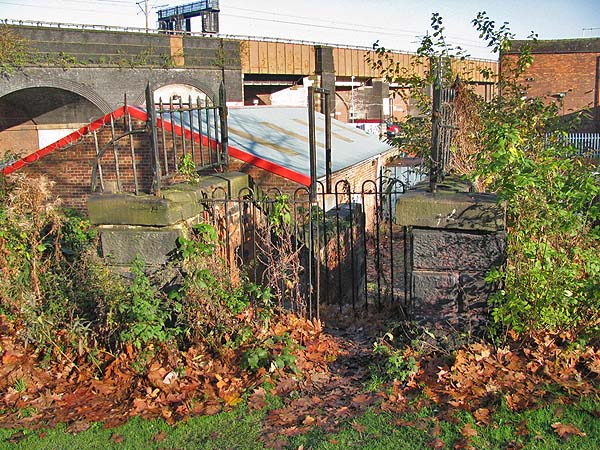 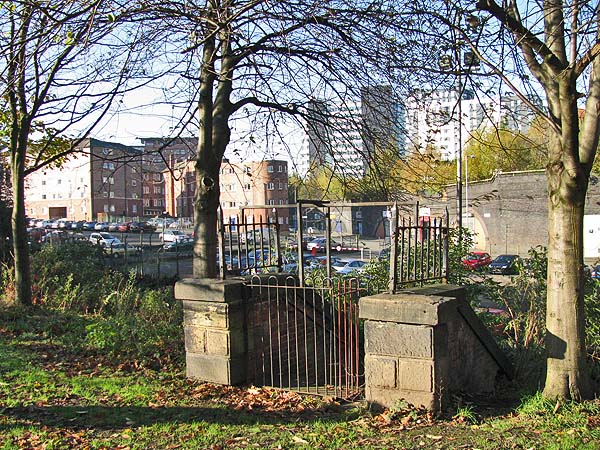 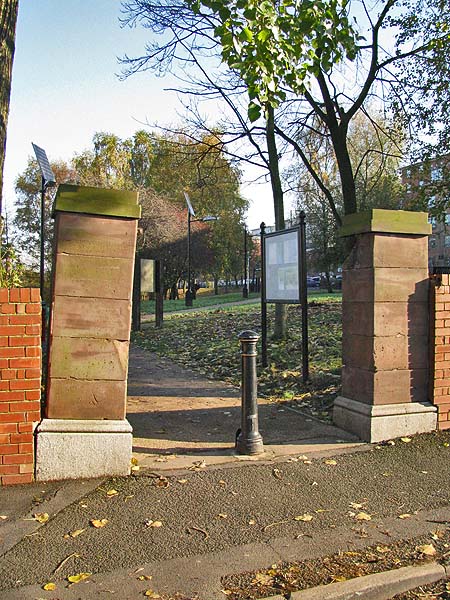 St. Michael's and All
Angels Church was built in 1788. One hundred years
later the Manchester Guardian said of it, "Why one of
the ugliest looking churches in Manchester, situated in
one of the most crowded and notorious parts of the city,
should have so long enjoyed the pleasant sounding name
of 'St. Michael's, Angel Meadow' is beyond
understanding." However, the church continued to
stand here until 1935. By that time this area,
that once heaved with humanity, no longer had a
population large enough to support it.
During the renovation of this site into a city park, which began in 2001, a number of the gravestones from St. Michael's churchyard were arranged in this corner. As you can see from the close up view of one below, it wasn't just the paupers, who were buried in the unmarked grave next door, who died in great numbers in Angel Meadow. 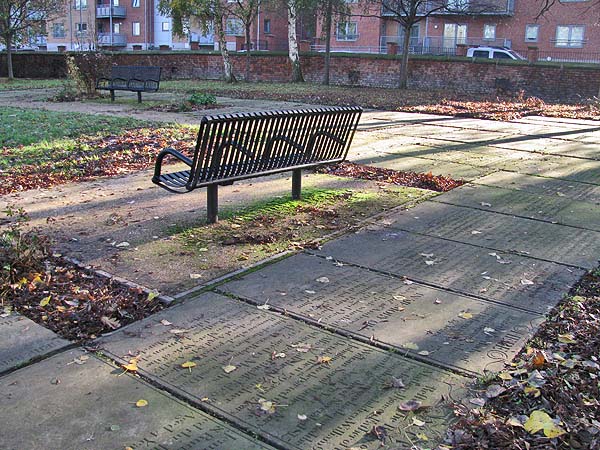 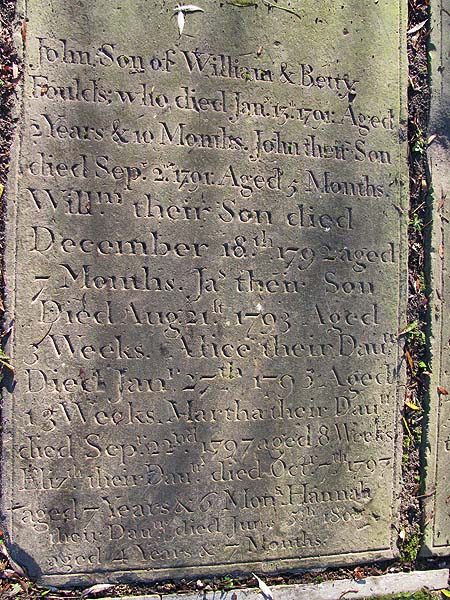 Close Window |